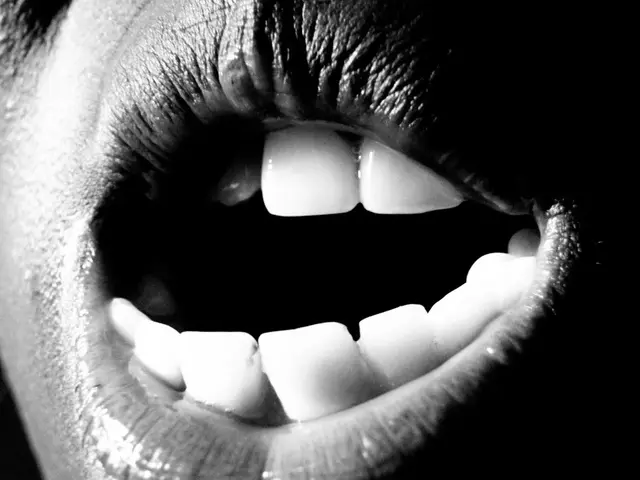Frequent Urination and Erectile Dysfunction: Connection and Remedies
In a series of studies, researchers have uncovered a significant association between erectile dysfunction (ED) and overactive bladder (OAB). This connection, while not fully understood, suggests that individuals living with one condition may be more likely to develop the other.
ED, a condition characterized by the inability to gain or maintain an erection, has been found to share a link with OAB. This link is thought to be due to underlying causes such as vascular dysfunction, neurological impairment, and systemic conditions like metabolic syndrome and chronic kidney disease.
Common causes of both conditions include vascular disease and endothelial dysfunction, neurological disorders, chronic kidney disease, and obstructive sleep apnea. These conditions impair blood flow and nitric oxide (NO) production, which are critical for erectile function and bladder control.
Treatment options for ED and OAB typically involve addressing the underlying causes and may include lifestyle changes, medication, and targeted therapies. For OAB, a stepwise management approach is recommended, starting with non-invasive measures such as bladder training and pelvic floor muscle exercises. For ED, addressing cardiovascular risk factors, systemic diseases, and treating related conditions like sleep apnea can improve erectile function.
Both ED and OAB can negatively impact a person's quality of life. Possible complications include inability to conceive, loss of intimacy, lowered self-esteem, depression or anxiety, and an unsatisfying sex life.
It is essential to consult a doctor if experiencing symptoms such as ED or OAB. Both conditions can typically improve with treatment. In some cases, these conditions may result from treatments for other conditions, such as certain medications or surgeries for bladder or prostate cancer.
The American Urological Association defines an overactive bladder as a group of urinary symptoms, the most common of which is an uncontrollable urge or need to pass urine. Treatment options for OAB include exercises to strengthen or stretch the bladder, avoiding foods that aggravate the bladder, avoiding delaying urination, keeping a urination journal, taking prescription medications, having Botox injections, undergoing nerve stimulation, considering bladder reconstruction or implanted devices, and more.
A person living with an overactive bladder may experience complications such as needing to take frequent trips to the bathroom, increased stress levels, skin irritation, disruption to sleep and sex life, feeling lonely or isolated, and depression or anxiety.
In conclusion, there is evidence supporting a link between ED and OAB, with both conditions often sharing underlying causes. Addressing shared underlying conditions such as metabolic syndrome, cardiovascular health, and sleep disorders may improve both OAB and ED symptoms simultaneously, illustrating the interconnected nature of these urological and sexual dysfunctions. If you are experiencing symptoms of ED or OAB, it is crucial to consult a doctor to rule out underlying health conditions and explore treatment options.
- The link between erectile dysfunction (ED) and overactive bladder (OAB) may be due to underlying medical-conditions like vascular dysfunction, neurological impairment, and chronic diseases such as metabolic syndrome and chronic kidney disease.
- Common causes of both ED and OAB include vascular disease, neurological disorders, and systemic conditions like obstructive sleep apnea, which impair blood flow and nitric oxide (NO) production essential for erectile function and bladder control.
- Treatment for OAB may involve exercises to strengthen or stretch the bladder, avoiding certain foods, keeping a urination journal, taking prescription medications, having Botox injections, undergoing nerve stimulation, considering bladder reconstruction or implanted devices, and more, which can also indirectly aid in managing ED symptoms.
- Individuals with OAB may experience complications such as needing to take frequent trips to the bathroom, increased stress levels, skin irritation, disruption to sleep and sex life, feelings of loneliness or isolation, anxiety, and depression.
- Persistent symptoms of either ED or OAB, which can negatively impact a person's mental-health, quality of life, and sexual-health, warrant consulting a doctor to rule out underlying health-and-wellness issues and explore treatment options.








